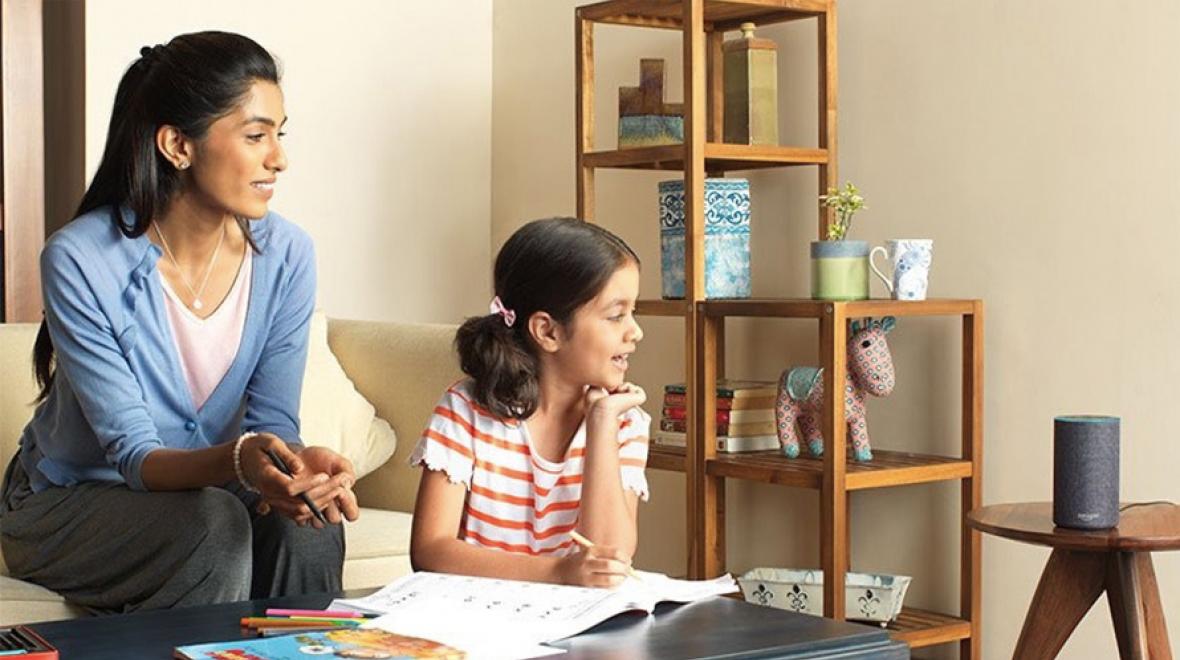
However you might feel about the existence of digital assistants like Amazon's Alexa, it's no secret that we need to prepare kids for a world that they will actually live in. And that means how to properly (and politely) interact with artificial intelligence (AI).
AI assistants aren't 100 percent childproof but they're not the big bad wolf either. Instead, as parents we need to better define the interaction between our children and the Alexas of today. After all, parents are gatekeepers for their children’s online experience, not just for Alexa but for all digital devices.
Here are three ground rules to get you started.
1. Don't be rude
Parents often run into courtesy conundrums: Should our kids say please to Alexa? Is it okay to call her an idiot? My opinion: Balance is best.
Repeating pleasantries to Alexa can lead to an over-humanization of Alexa, which in turn can blur the lines between animate and inanimate objects. With more and more voice-activated systems appearing in our daily lives, from smart homes to smart cars, it's on us to help children conceptualize virtual assistants in a healthy way.
And for these same reasons, you shouldn't abuse Alexa. You don’t go kick a door after you bump into it, right? Why abuse an inanimate tool meant to assist you?
2. Limit time
One of the challenges with Alexa is that the tool is available 24-7. You can't even really put it away; there's no screen to hide! And while being screenless has its upsides -- Alexa is more engaging than starring at a TV -- its important to remember that, at the end of the day, Alexa is a digital device.
So, like with any other device of technology, it's a great tool for learning but not a replacement for human interaction.
In general, it helps to think of these devices as tablets. We have to make sure that there is a balance between the time kids are interacting with the systems versus interacting with humans, doing physical activities and getting enough rest.
Keeping that in mind, there can be certain times during the day when we can avoid interacting with Alexa. Our questions, however inquisitive they are, can wait until we finish our conversation with real people or playing with our friends.
So it's okay to say: "Alexa, stop. We are having dinner now."
3. Don't let Alexa raise your kid
Alexa can sing lullabies to children, remind them of bedtime and provide positive reinforcement when kids say please. But a machine cannot know a child the way a parent does.
As parents we need to be aware that Alexa is a passive system. If she doesn’t have the answer to your child's question, jump in and suggest other ways of attaining that knowledge. Digital assistants are amazing tools to gather information but don't let them implicitly teach children that knowledge is easily attainable.
As immediate adults in the vicinity of Alexa, we can enrich the dialogue by asking our own questions or mixing it up and asking the kid a few questions. If we are not around when the kids are talking to Alexa (and that is totally okay), we can certainly follow-up afterwards to see how they have been using it. Try it as a conversation starter, something different than "How was school today?"
So don't just watch your kids interact with Alexa. Be an active part of that interaction.
This story originally published on PopSmartKids.











